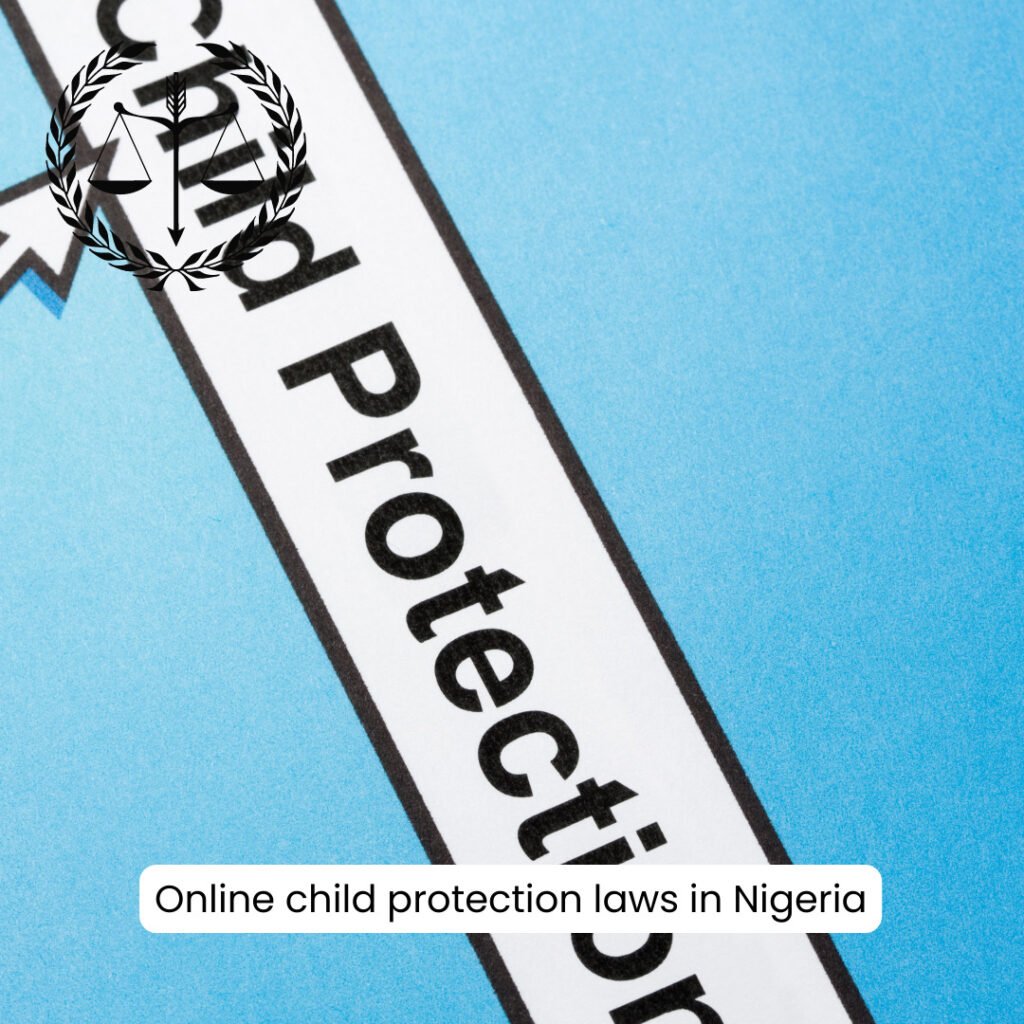Online Child Protection Laws in Nigeria
In the digital age, where technology offers both opportunities and challenges, ensuring the safety and well-being of children in the online realm has become a top priority. As children increasingly engage with digital platforms, play online games, and access educational resources, the need for comprehensive online child protection laws has never been more crucial. In Nigeria, a nation embracing technological advancement and digital transformation, safeguarding children from online risks and harm has taken center stage. In this article, we delve into the realm of online child protection laws in Nigeria, exploring their significance, challenges, regulatory approaches, and implications for children, parents, and the broader digital society.

The Digital Playground and Child Safety
The digital world offers children a plethora of opportunities for learning, creativity, and entertainment. However, it also exposes them to potential risks, including cyberbullying, inappropriate content, online predators, and identity theft. Online child protection laws aim to mitigate these risks and ensure that children can explore the digital landscape in a safe and secure manner.
The Significance of Online Child Protection Laws
Online child protection laws hold immense significance for several reasons:
- Child Well-being: Laws prioritize the physical, emotional, and psychological well-being of children in the digital environment.
- Preventing Exploitation: Regulations are essential for preventing the exploitation, abuse, and trafficking of children online.
- Parental Empowerment: Laws empower parents and guardians with tools and resources to protect their children online.
Challenges in Online Child Protection Laws
Online child protection laws in Nigeria come with challenges:
- Rapid Technological Change: The fast-paced evolution of digital technologies requires laws that can adapt to new platforms and services.
- Digital Literacy: Ensuring that parents, guardians, and children are digitally literate and informed about online risks is essential.
- Cross-Border Enforcement: Addressing online threats that transcend national borders requires international cooperation and collaboration.
Regulatory Approaches
Regulatory approaches to online child protection can include:
- Age Verification: Requiring platforms to implement age verification mechanisms to prevent children from accessing age-inappropriate content.
- Content Filters: Implementing content filtering and blocking mechanisms to restrict children’s access to harmful or explicit content.
- Reporting Mechanisms: Establishing reporting mechanisms for users to report instances of child exploitation, abuse, or online threats.
Implications and Opportunities
Online child protection laws have implications for children, parents, digital platforms, and the broader society:
- Child Safety: Laws prioritize the safety and protection of children, allowing them to explore the digital world with confidence.
- Parental Guidance: Regulations empower parents to take an active role in their children’s online experiences, promoting open communication and supervision.
- Platform Responsibility: Digital platforms are held accountable for providing safe and secure environments for children.
Charting the Path Forward
The future of online child protection laws in Nigeria holds promise:
- Stakeholder Collaboration: Engaging with child protection organizations, technology companies, educators, parents, and legal experts is crucial for effective regulation.
- Education and Awareness: Raising awareness among parents, children, and
- educators about online risks and safety measures is essential.
- Continued Adaptation: Laws should remain flexible and adaptable to emerging digital trends, technologies, and challenges.
Conclusion
Online child protection laws play a pivotal role in shaping the digital future of Nigeria by ensuring that children can explore the online realm safely and securely. By adopting principles that prioritize child well-being, parental guidance, and platform responsibility, Nigeria can create a digital landscape where children can thrive, learn, and play without being exposed to online harm. As Nigeria continues its digital evolution, a proactive and adaptive approach to online child protection laws will contribute to a digital future that values the safety, health, and happiness of its youngest citizens, fostering a generation that is empowered and equipped to navigate the digital world responsibly.
